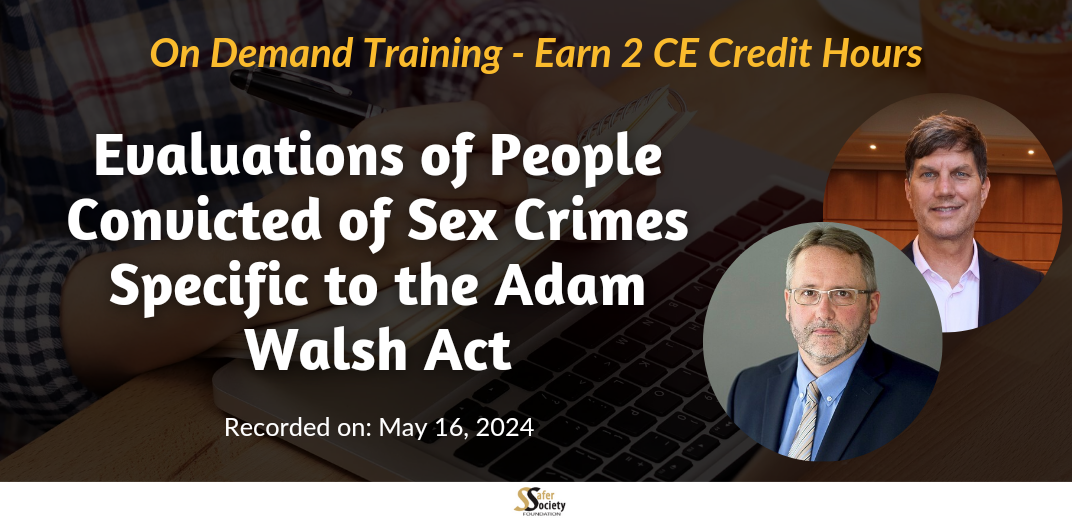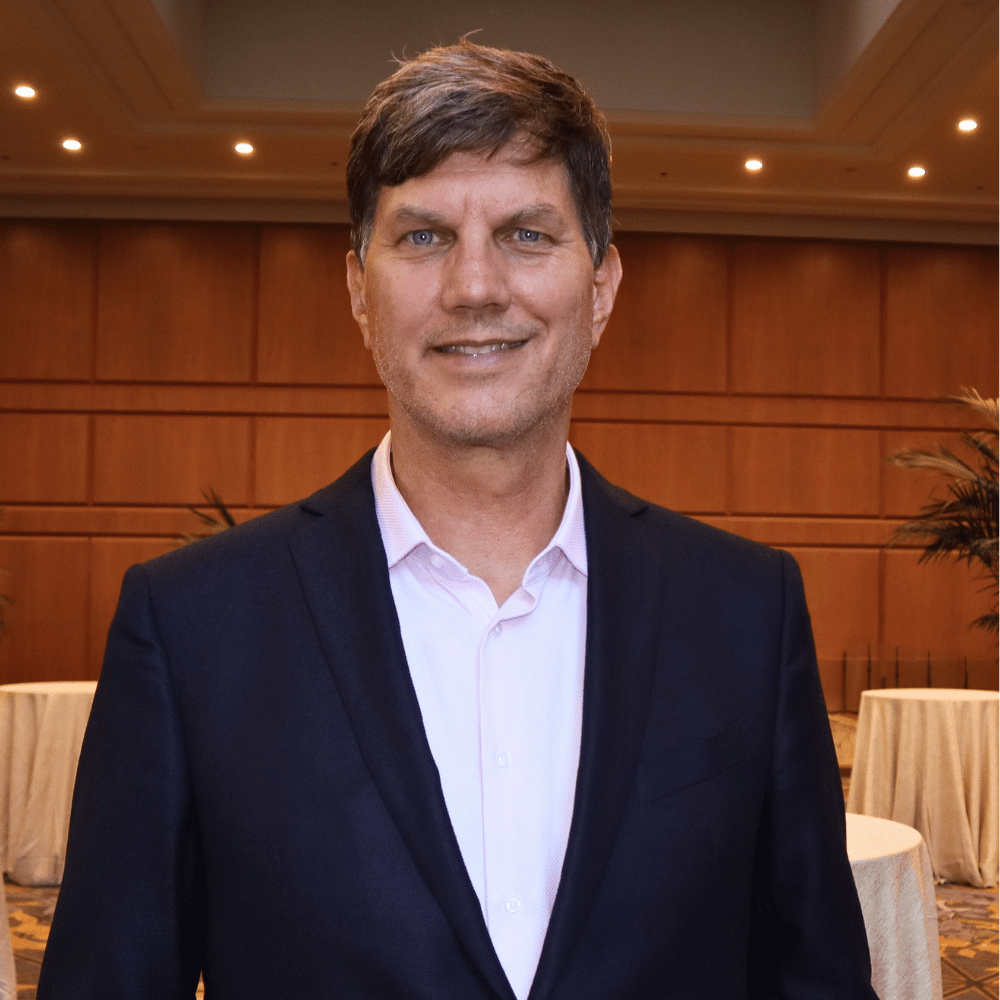
Evaluations of People Convicted of Sex Crimes Specific to the Adam Walsh Act
Already purchased an On Demand training?
Click here to access your Safer Society On-Demand Training Center account.
The Adam Walsh Act (AWA) prohibits a US citizen petitioner who has been convicted of a specified offense against a minor from having an immigrant visa approved on behalf of a relative. However, the statute provides a “limited exception” if the Secretary of Homeland Security determines the petitioner poses no risk to the beneficiary. This limited exception determination is made after an assessment of the petitioner, usually by a psychologist specialized in treating and assessing individuals who have sexually offended.
Assessments for determining risk under the AWA are intricate, involving evaluators in complex clinical and ethical dilemmas uncommon in typical sexual offender evaluations. During this training, psychologist Dr. Thompson and immigration attorney Mr. Lolly discuss the intricacies of these assessments—what works and what doesn’t—arriving at recommendations from both legal and clinical perspectives. The presenters review:
- The history of the AWA
- Interpretation of the statue
- Terms clarification
- Referral criteria
- Evaluation procedures
They also focus on the standards and expectations of these assessments, the format of reports, and the clinical and ethical conundrums inherent in these evaluations.
1) Describe the history of the AWA and its implications, particularly concerning family-based immigration petitions.
2) Explain the standards and expectations of assessments to determine risk specific to the provisions of the AWA and the format of reports.
3) Analyze risk specific to the provisions of the AWA within a reasonable standard of practice.
4) Describe the clinical and ethical conundrums inherent in these evaluations.
Audience
This training is designed for individuals who need to understand the complexities of assessments under the AWA, particularly focusing on evaluating the risk posed by US citizen petitioners with convictions related to offenses against minors. Psychologists, immigration attorneys, legal professionals, and evaluators specializing in sexual offender treatment and risk assessment would find this training valuable
Content Level
Disclosure
Continuing Education Approval
American Psychological Association (APA)
Safer Society Foundation, Inc. is approved by the American Psychological Association (APA) to sponsor continuing education for psychologists. Safer Society Foundation, Inc. maintains responsibility for this program and its content.
Who's Presenting

Michael D. Thompson, MSW, Psy.D., ATSA-F
Michael Thompson earned his Master of Social Work degree from Fordham University, and his Doctor of Psychology degree from Pacific University. He is a licensed psychologist in private practice in Minneapolis specializing in forensic and clinical psychology. The bulk of Dr. Thompson’s practice focuses on the evaluation and treatment of sexual offenders, as well as sexual offender and violence risk assessment, competency to stand trial, mentally ill and dangerous, and other civil commitment assessments. Dr. Thompson also serves as a consultant to all six branches of the United States Armed Forces in military courts martial. He is a Fellow of the Association for the Treatment of Sexual Abusers and a former president of the Minnesota Chapter of the Association for the Treatment of Sexual Abusers.

Allan S. Lolly, J.D.
Allan Lolly earned his Bachelor Degree from University of California-Berkeley and Juris Doctor degree from Santa Clara University. A former criminal prosecutor, Allan has practiced immigration law exclusively for the past 20 years. While any approval from United States Citizenship and Immigration Services (USCIS) is rare, Allan has been successful in AWA USCIS approvals in the past several years. Allan’s success is attributed to his dedication to a difficult area of law and an understanding of the disconnections between immigration law and process as compared to risk assessments in psychology. Allan encourages a team approach to case development inclusive of an assessing psychologist and associate attorney.
